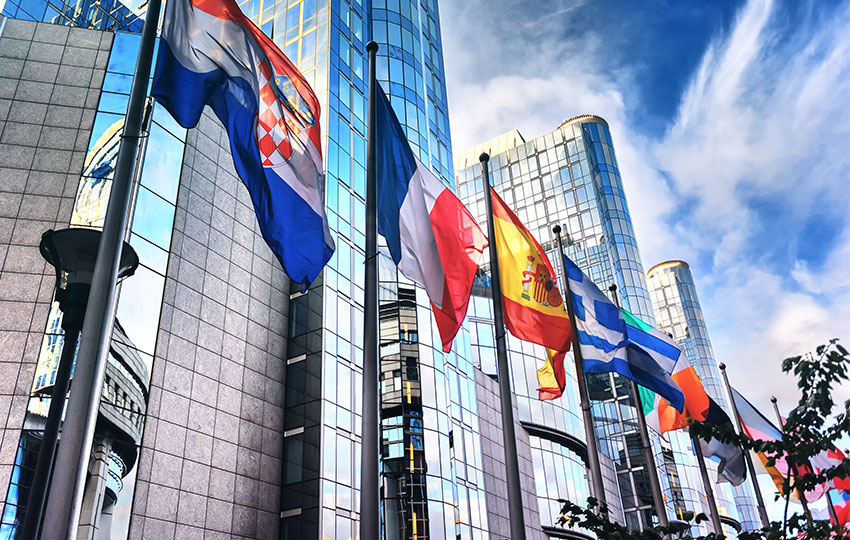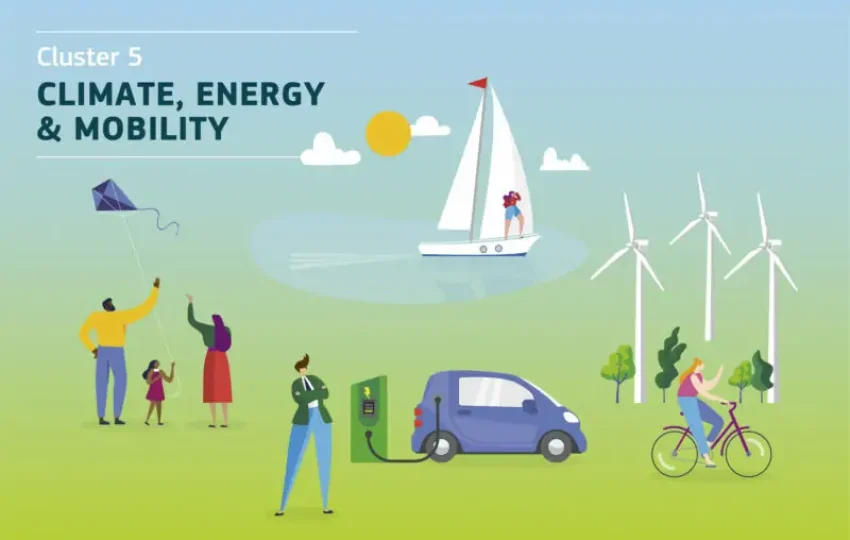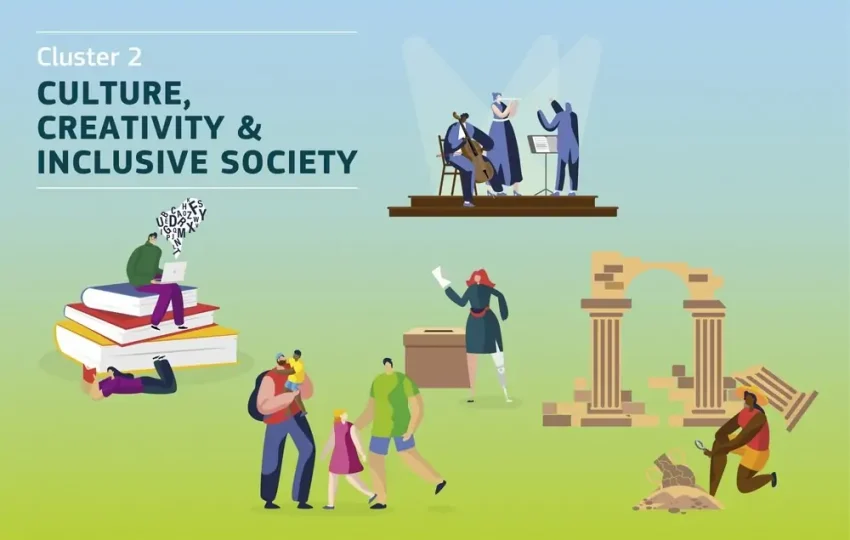The fourth part of the ‘’EU Agencies’’ series is here. Get to know the EU Agencies of your country!
1. European GNSS Agency (GSA)
With a new generation of Global Navigation Satellite Systems (GNSS), which includes EGNOS and Galileo, Europe is opening new doors to industrial and economic growth. The GSA, a European Union Regulatory Agency, is responsible for:
- Preparing for the successful commercialisation and exploitation of the systems, with a view to smooth functioning, seamless service provision and high market penetration;
- Ensuring the security accreditation of the system and the establishment and operation of the Galileo Security Monitoring Centres;
- Accomplishing other tasks entrusted to it by the European Commission, such as managing EU GNSS Framework Programme Research and Innovation (Horizon 2020), the promotion of satellite navigation applications and services, and ensuring the certification of the systems’ components.
- In addition, under delegation from the European Commission, the GSA assumed responsibility for the operations and service provision for the EGNOS Programme in 2014 and will take up these responsibilities for the Galileo Programme from 2017.
Staffed with skilled professionals bringing relevant experience from both the public and private sectors, the GSA is well-positioned to contribute to one of the most important and ambitious projects ever undertaken by the European Union. Backed by its motivation and know-how, the GSA is dedicated to ensuring that Europe’s GNSS goals are met and that, as a result, European citizens are able to reap the benefits.
The agency was established in 2004 and is located in Prague, Czech Republic
2. European Institute of Gender Equality (EIGE)
Although equality between women and men has been one of the fundamental principles of the European Union since the very beginning, there is still a clear and demonstrated democratic deficit with regard to women’s involvement in EU decision-making.
The European Institute for Gender Equality’s (EIGE) Gender Equality Index shows that despite strong commitments from the EU bodies and the Member States, the European Union is only halfway towards a gender-equal society In order to support better-informed policy-making EIGE contributes to the promotion of equality between women and men in Europe through delivering high-level expertise to the European Commission, the Member States, the European Parliament and Enlargement countries. For example, EIGE’s support to the EU Presidencies in reviewing and developing the UN indicators of the Beijing Platform for Action and its research on gender-based violence.
EIGE was established to contribute to and strengthen the promotion of gender equality, including gender mainstreaming in all EU policies and the resulting national policies, and the fight against discrimination based on sex, as well as to raise EU citizens’ awareness of gender equality. Equality between women and men is a fundamental right, common principle and core value of the European Union. Therefore ‘Making equality between women and men a reality for all Europeans and beyond’ is the vision of EIGE. To make this vision a reality, EIGE is to become the knowledge centre and the front-runner in developing reliable evidence, collecting knowledge, sharing useful experiences and expertise on gender equality.
The agency was established in 2010 and is located in Vinius, Lithuania
3. European Institute of Innovation and Technology (EIT)
EIT spurs innovation and entrepreneurship across Europe to overcome some of the EU’s greatest challenges. It brings together leading higher education institutions, research labs and companies to form dynamic cross-border partnerships called Knowledge and Innovation Communities (KICs). These communities develop innovative products and services, start new companies, and train a new generation of entrepreneurs.
To date, three such communities have been set up on climate, information and communication technologies, and energy, bringing together over 480 partners. Through the EIT’s unique funding model, every euro invested from the EU budget triggers higher investment from other sources. The €300 million invested by the EIT into its KICs’ activities between 2010 and 2013 resulted in 78.5% of funding from external sources.
The EIT’s communities are growing into thriving European innovation hubs. Since 2011, they have set up 18 innovation hotspots (Co-location Centres) across Europe, received over 12000 applications to EIT-labelled degree programmes (that is more than 12 applicants per offered seat), incubated more than 440 business ideas, created 75 start-ups, contributed to 164 knowledge transfers and adoptions, and resulted in 61 new products and services.
The EIT makes innovation happen!
The agency was established in 2008 and is located in Budapest, Hungary
4. European Insurance and Occupational Pensions Authority (EIOPA)
EIOPA’s core responsibilities are to support the stability of the financial system, improve the transparency of markets and financial products as well as to protect policyholders, pension scheme members and beneficiaries. EIOPA monitors and identifies trends, potential risks and vulnerabilities stemming from the micro-prudential level, across borders and across sectors.
It aims to ensure a high, effective and consistent level of supervision in the area of insurance and occupational pensions. It seeks greater harmonisation and the coherent application of rules for financial institutions and markets across the EU. It also works to strengthen oversight of cross-border groups and to promote a coordinated EU supervisory response to potential financial risks. In view of the increased importance of global standards, EIOPA represents the European insurance supervisors, by bringing forward a European voice, in particular in its engagement with the International Association of Insurance Supervisors (IAIS).
EIOPA is an independent advisory body to the European Parliament, the Council of the European Union and the European Commission. The Authority is also part of the European System of Financial Supervision consisting of three European Supervisory Authorities and the European Systemic Risk Board.
The agency was established in 2011 and is located in Frankfurt, Germany
5. European Joint Undertaking for ITER and the Development of Fusion Energy (F4E)
F4E is the EU’s organisation responsible for providing Europe’s contribution to ITER, the world’s largest scientific partnership that aims to demonstrate fusion as a viable and sustainable energy source. ITER brings together seven parties that represent 80% of the global GDP and 50% of the world’s population- Europe, Russia, Japan, China, India, South Korea and the United States. Europe, as the host for ITER, contributes up to 50% of the cost.
F4E also supports fusion research through the Broader Approach Agreement, a fusion energy partnership signed with Japan, that will last for 10 years. Ultimately, F4E will contribute towards the construction of demonstration fusion reactors. A large volume of contracts will be awarded by F4E to manufacture ITER components and enhance fusion technologies. In order to increase Europe’s competitiveness and stimulate growth and jobs, F4E has developed an industrial policy to help European industry, SMEs and fusion laboratories to get involved and unleash their potential.
The agency was established in 2007 and is located in Barcelona, Spain
Read also
Learn about the EU agencies across Europe – Part 3


